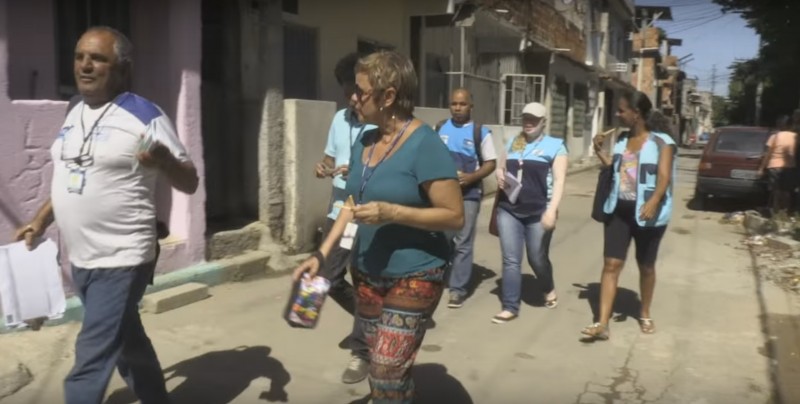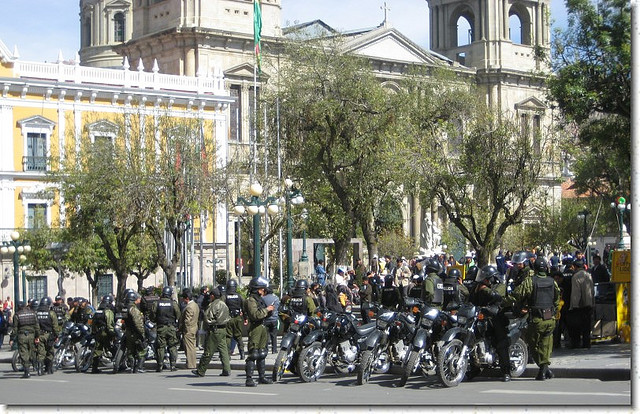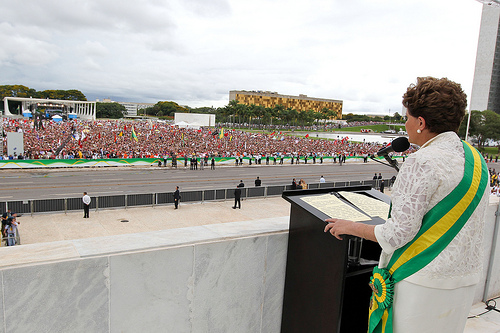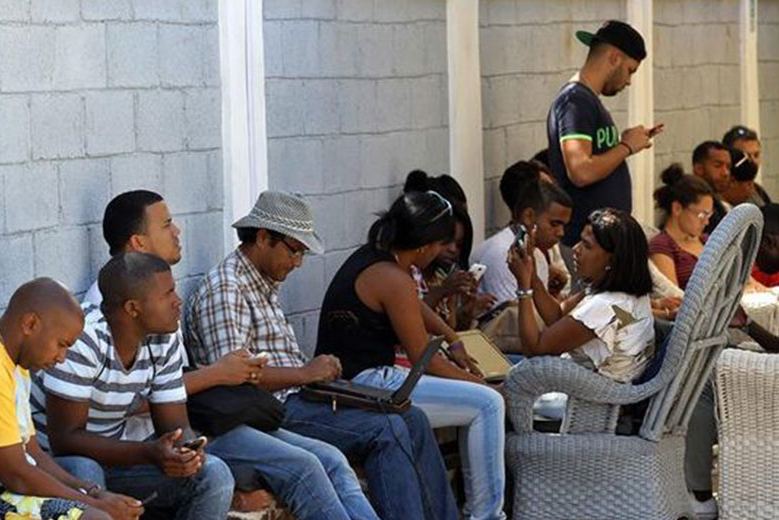
Andes, Caribbean, Central America, Latin America: Week in Review, North America, Southern Cone
Hemisphere Reacts to ‘Explosion’ of Zika Virus
January 29, 2016 By Staff
Top Story — The World Health Organization declared Thursday the mosquito-borne Zika virus, linked to thousands of cases of birth defects in Brazil, is “spreading explosively.” The WHO’s Americas division now forecasts as many as 4 million cases of the disease could spread throughout the hemisphere, and governments across the region are scrambling to respond.
The disease, which is spread by bites of female Aedes aegypti mosquitoes, has been linked to a sharp spike in cases of microcephaly, in which newborn babies are born with abnormally small heads and without fully developed brains, although a causal relationship has not yet been proven. 4,000 cases of microcephaly have been reported in Brazil since September, with nearly 1,000 cases, or 1 to 2 percent of all births, recorded in the state of Pernambuco, the virus’ epicenter.
Identifying pregnant women who may be carriers of the disease has been a challenge as 80 percent of all those infected show none of the symptoms: mild fever, rash and red eyes.
With cases of the virus having now been confirmed in 23 countries in the region and a proven vaccine not expected in 2016, countries are responding to the impending health crisis in different ways. In Brazil, embattled President Dilma Rousseff has declared “war” on the virus, promising to deploy 220,000 troops to distribute information about the disease as well as to identify and eliminate stagnant water mosquito breeding grounds. Researchers are also attempting to assess the the role that the upcoming 2016 Olympic Games in Rio de Janeiro will have in spreading the disease, with the International Olympic Committee expected to release guidelines on Friday.
Meanwhile, Brazilian reproductive rights activists, lawyers and scientists have filed a petition to the Brazilian Supreme Court to provide medical exceptions to women seeking abortions, one of the few ways women in the country can access the otherwise illegal procedure. El Salvador, criticized for its exceptionally strict abortion laws, has attempted to address Zika infections in pregnant women by calling on women to avoid pregnancy until 2018.
The virus’ health implications are not yet fully understood. Health officials in Colombia have noted an increase of Guillain-Barré syndrome, a rare neurological disorder that affects nerve cells and can potentially lead to paralysis, in people infected with the virus. In Venezuela, the sharp increase in Zika cases has placed a strain on an already faltering healthcare system with thousands of infected people without access to treatment drugs. When the drugs are available, some patients pay nearly $100 for black market immunoglobulin treatments.
In the United States, there have been 31 infections — all from travelers to areas affected by the virus — causing U.S. Centers of Disease Control officials to offer precautions about travel while urging those within the country to remain calm.
Headlines from the Western Hemisphere
North America
- A U.S. Senate report has found that more than a dozen immigrant children were handed over by the Department of Health and Human Services to human traffickers, after the agency failed to sufficiently vet potential caregivers, and it remains unclear how many more of 90,000 immigrant children may have suffered the same fate in recent years.
- Seven Central American women detained in a Texas facility with more than 100 other immigrants taken into custody as part of sweeping ICE raids three weeks ago sent a letter to U.S. President Barack Obama Thursday pleading for freedom, arguing they have been unfairly detained as an example to others.
- A new poll from Reuters/Ipsos found that the majority of Americans support Obama’s controversial immigration plan that would allow certain immigrants who entered the country illegally to stay, although the percentage of support drops when Obama’s name is explicitly attached to the question, highlighting the polarization coloring the debate over immigration.
Caribbean
- Puerto Rico’s power utility and its bondholders have renewed negotiations to restructure around $9 billion of debt after talks broke down last week following a year and a half of deliberations, raising hopes that a default can still be avoided.
- Puerto Rico’s Health Department adopted a policy that allows for the use of medical marijuana in several forms, as well as its distribution and manufacturing, though smoking or cultivating the drug for recreational use remains illegal.
- U.S. rabbis visiting the Dominican Republic on Thursday spoke out against the country’s treatment of people of Haitian descent and their threatened deportation, likening the situation to the persecution faced by Jewish people throughout history.
Central America
- Guatemala’s Supreme Court voted against lifting the immunity of Édgar Justino Ovalle, an advisor to President Jimmy Morales accused of participating in human rights abuses as a military officer during the country’s civil war, who enjoys immunity from prosecution as a current member of Congress.
- A devastating drought has taken its toll in Panama, drying up several major rivers and affecting the agricultural province of Los Santos that accounts for 80 percent of the country’s corn production.
Andes
- Colombia’s constitutional court initiated a review process Thursday evaluating a petition to repatriate 122 gold artifacts that were gifted to the Spanish crown in 1893.
- Colombian President Juan Manuel Santos said in an interview with The Associated Press Thursday, just days before a visit to the White House, that he wants the United States to remove the FARC from its terror list and lift drug warrants against them to help secure a pending peace deal.
Southern Cone
- Brazilian prosecutors investigating corruption at the state oil firm Petrobras said Wednesday they are looking into whether the company laundered money through luxury real estate, a scheme in which former President Luiz Inácio Lula da Silva has denied any involvement despite having considered purchasing one of the suspect apartments.
- Argentina and Brazil, neighbors who often compete with protectionist trade restrictions despite joint membership in the Mercosur trade bloc, may seek to liberalize the trade between them in cars and trucks starting in July, a Brazilian newspaper reported.





